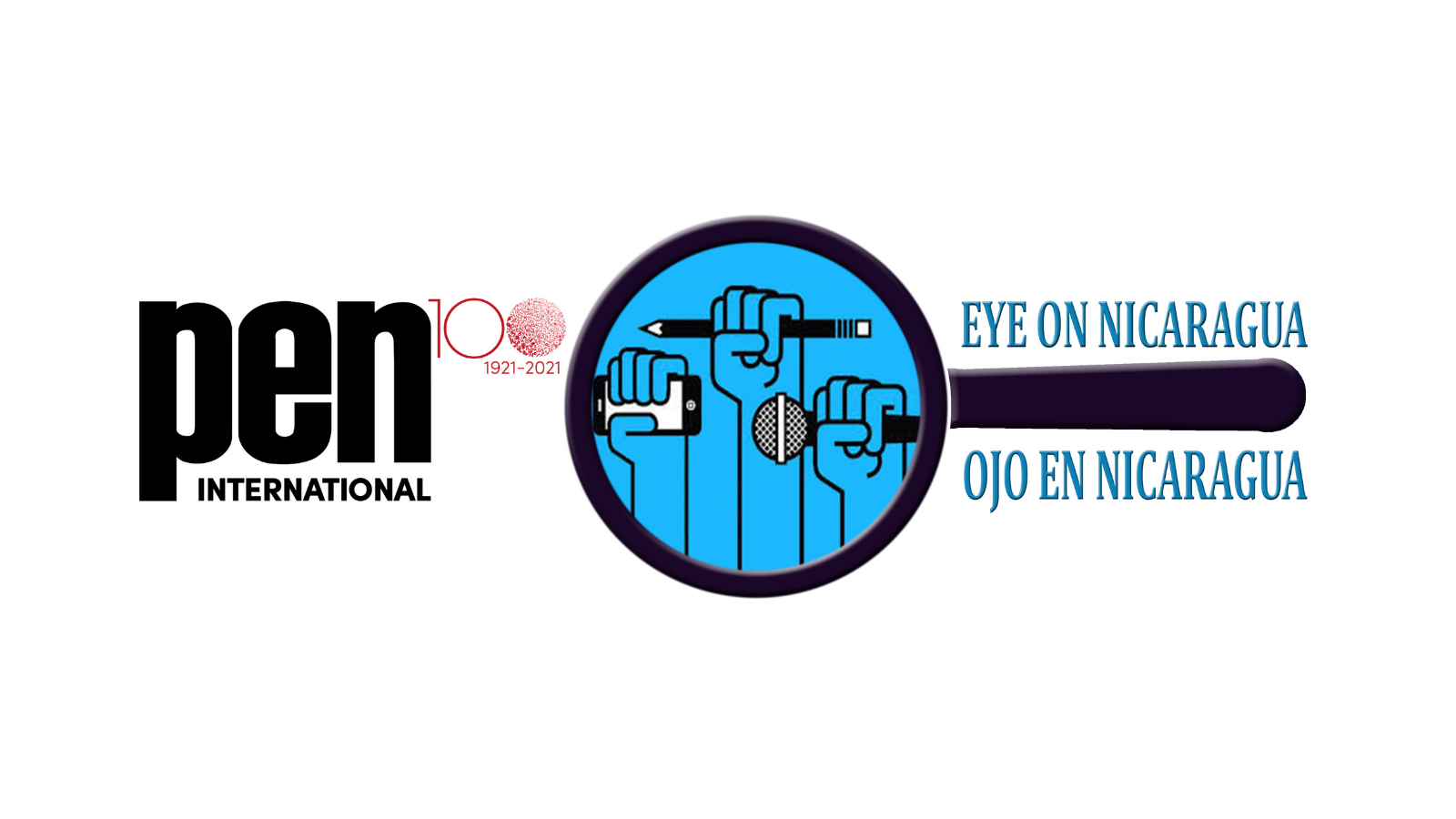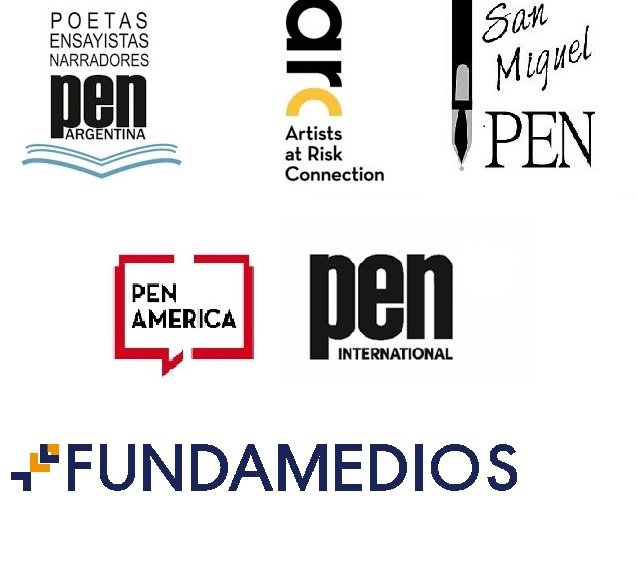Eye on Nicaragua
A new wave of terror and detentions
May 11, 2023
The month of May began in Nicaragua with the one of the most violent raids of the last few months: at least 57 people, including journalists, political activists, and human rights defenders were arrested and criminally charged by the Nicaraguan government without trial and amid arbitrary nighttime raids that generated anxiety and uncertainty among the population.
The new wave of terror started on Wednesday, May 3, simultaneously in various parts of the country, involving dozens of police units and riot control forces who stormed homes to forcibly remove detainees, without an arrest or search warrant.
The arrests began on the night of May 3, World Press Freedom Day, putting the repressive situation in Nicaragua back on the agenda, where the government has destroyed fundamental freedoms while preventing the exercising of the human right to think, express oneself, and communicate ideas.
“The tyrants are afraid of words,” summarized the poet and novelist Gioconda Belli, President of the Nicaraguan PEN Centre and in exile for the second time due to the persecution of the regime in her country, in an interview that we include part of at the end of this document.
Three journalists arbitrarily detained
Among those affected are the journalists Hazel Zaomra, correspondent of the TV station Canal 10 in the city of Bluefields (South Caribbean), Oscar Vallecillo, an employee of the same TV station, and William Aragón, a former correspondent for the newspaper La Prensa en Nueva Segovia (Northwest). The three were detained for several hours and later released, with the warning that they had been charged with crimes “to the detriment of the Nicaraguan State” and that, from that moment on, they should report daily to the law enforcement authorities, as a way to maintain control over them.
Hazel Zamora was arrested by police on May 4 in front of his two sons, 11 and 9 years old, as she was about to travel by bus from Managua to Bluefields. At the same time, his home in the Caribbean city was being raided by the police, who also took his work equipment, as reported by the site Alertas Libertad de Prensa.
William Aragón was detained on the night of May 3 in the city of Estelí. He recounted to the publication Confidencial Digital that his home was surrounded by eight police vehicles. They took two computers from the home, including his daughter’s, items with sentimental value, personal documents, and two phones, and they told him that he should accompany them to Managua because it was an “order from the headquarters.”
“They never told me why they detained me,” said the veteran journalist, who following the 2018 protests, received death threats and was arrested on one occasion. Aragón was released hours after having been detained by Daniel Ortega’s police forces.
In addition to the attacks suffered by these three reporters, the young journalist, Víctor Ticay, was also arrested, and, on May 7, completed one month in detention in a cell at the Managua police station. Ticay, a correspondent for the TV station Canal 10, in the area of Nandaime (South) and director of the Facebook page La Portada, was detained by the police during Holy Week without explanation, after he tried to film a religious procession in the town.
Read here PEN International’s statement on Víctor Ticay.
That same day, in the municipality of Nandaime, several people were detained by police and paramilitary after a day of unlawful arrests reported by human rights organizations in Nicaragua.
Víctor Ticay is the second youngest of nine brothers raised in the rural community of Nandarola, located 15 kilometers from Nandaime. In contrast to other professionals that move to the capital to pursue their careers, Ticay made his way in his own municipality and showed that local voices matter. He earned the recognition and admiration of the people of Nandaime and was frequently sought out by citizens who asked to share their complaints or social services,[1] as reported by the site 100% Noticias.
Authorities close down two other media outlets
During the first week of May, the government closed 20 more organizations, adding to the at least 3,000 non-profit organizations shutdown. Among the new outlets banned is the Fundación Cristiana de Televisión Enlace, directed by the former presidential hopeful and evangelical pastor, Guillermo Osorno, who, according to the press, was prevented from leaving the country for a work trip.
The Foundation ran the TV channel Enlace Canal 21 and Radio Nexus 89.5 FM, property of Osorno, whose operating license was revoked by the Nicaraguan Institute of Telecommunications and Postal Services (TELCOR).
Gioconda Belli: “They want to hide the truth”
“In my country, there is no freedom of action, of expression, nor of assembly, in such a way that the space for freedom that remains in Nicaragua is the space of freedom in the heart of each Nicaraguan,” said the poet Gioconda Belli in an interview with the German radio and TV outlet, Deutsche Welle, after denouncing that “the population is very threatened and very fearful, because repression has become generalized, one feels an atmosphere of constant surveillance and they continue to arrest and jail people.”
The government of Nicaragua has put independent writers, artists, and journalists in its crosshairs as part of its repressive strategy. Belli makes clear: “Words are threats for tyrants, as has been seen since the beginning of history. The people who have had the capacity to express popular feelings are repudiated by tyrants that want to hide the truth and dominate the population through lies and manipulation.”
Likewise, she rejects the “deceitful discourse” of the supposed coup d’etat that the regime has used to criminalize civic protests. “The whole world can see protests of thousands of people from all social classes, rejecting Ortega for remaining in power and for having destroyed the democratic achievements that have cost Nicaraguan society so much.”
“That is the reason for this repression: the fear of words, of truth, and of those who speak the truth,” underscores the author of “Truenos y arcoíris,” "El país bajo mi piel,” "Sofía de los presagios,” and "Luciérnagas,” among other works.
After the exile of many Nicaraguan journalists and the closing of their outlets, Ortega imposed an “information blackout” to prevent others from finding out about what happens in the country, where there are still almost 40 prisoners of conscience, among them the Bishop of Matagalpa (North), Monsignor Rolando Álvarez, sentenced to 26 years in prison for refusing to be exiled along with 222 released political prisoners this past February 9.
According to Gioconda Belli, it is those who have left Nicaragua that “are defeating the siege of silence through their reporting” on what is occurring in the country. Outside, she says, “there is an even larger community of speakers and they will not silence us.”
Translation: Jake Neuberger, Program Assistant for Latin America and the Caribbean, Artists At Risk Connection.
Since its brutal crackdown on protests in 2018, the Nicaraguan government has increased its efforts to stifle dissent, through torture, imprisonment and exile. Anyone who criticises Daniel Ortega’s regime is vulnerable, including writers and journalists.
Ongoing violations of freedom of expression, including restrictions imposed on NGOs, have forced PEN Nicaragua to suspend its operations indefinitely. In response, with the support of PEN Centres in the Americas, we established Eye on Nicaragua to expose and document the Nicaraguan government’s sustained censorship attempts.
Regular updates log attacks on freedom of expression, highlighting arrests of journalists and artists, and tracking forced closures of NGOs. In August 2021, the organisation Fundamedios joined us to support the distribution of information on Nicaragua at regional and international level.


